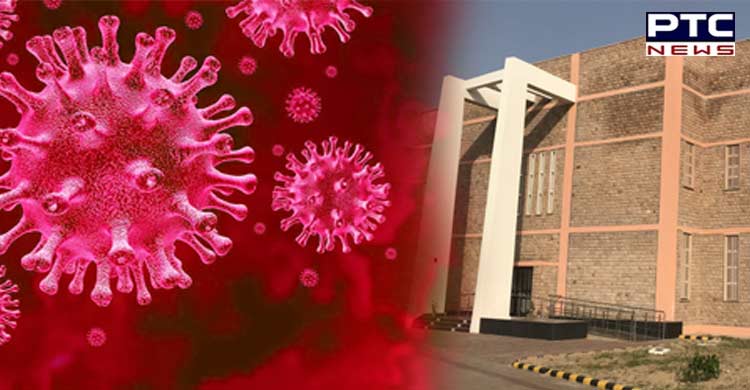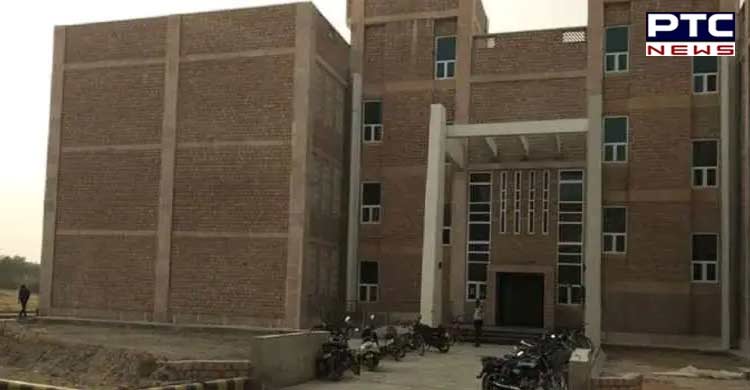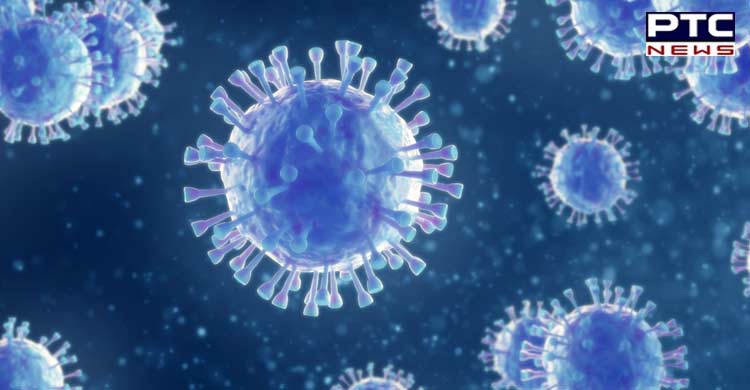

IIT-Jodhpur researchers identify Covid-19 RNA variations, implications
New Delhi, February 10: A multi-institutional team led by the Indian Institute of Technology (IIT) Jodhpur used state-of-the-art genomic sequencing methods to identify variations in the Ribonucleic acid (RNA) of the COVID-19 virus.
 Also Read | Sidhu would’ve been right choice for Congress CM face: Navjot Kaur
"The scientists have also studied the fixation of these intra-host variations into extra-host variations and mutations that lead to variants. The results of the two-phase study have been published in the journal, Nucleic Acid Research," IIT Jodhpur said in a statement. "An important distinction of this research study is that it was conducted primarily by a team of computational graduates from across distant locations, proving that the pandemic has generated novel cooperation, sharing, and resource-sharing modes for innovative research," IIT Jodhpur said.
Also Read | Sidhu would’ve been right choice for Congress CM face: Navjot Kaur
"The scientists have also studied the fixation of these intra-host variations into extra-host variations and mutations that lead to variants. The results of the two-phase study have been published in the journal, Nucleic Acid Research," IIT Jodhpur said in a statement. "An important distinction of this research study is that it was conducted primarily by a team of computational graduates from across distant locations, proving that the pandemic has generated novel cooperation, sharing, and resource-sharing modes for innovative research," IIT Jodhpur said.
 The institute further said that the RNA structure of the COVID-19 virus frequently undergoes minor modifications within the host cells (intra-host variations). These modifications occur at the nucleotide level - nucleotide being the building block of the RNA molecule. Many of these intra-host variations are caused by enzymes present in the host cell as an immune response.
Thus, many of these variations are harmless or even destructive to the virus itself. However, some variations can enhance the survivability of the virus, and become fixed as extra-host variations that could potentially lead to variants-of-concern, said IIT Jodhpur.
The institute further said that the RNA structure of the COVID-19 virus frequently undergoes minor modifications within the host cells (intra-host variations). These modifications occur at the nucleotide level - nucleotide being the building block of the RNA molecule. Many of these intra-host variations are caused by enzymes present in the host cell as an immune response.
Thus, many of these variations are harmless or even destructive to the virus itself. However, some variations can enhance the survivability of the virus, and become fixed as extra-host variations that could potentially lead to variants-of-concern, said IIT Jodhpur.
 The research team studied intra-host Single Nucleotide Variations (iSNV) using a sequencing platform called Illumina. During Phase 1 of the project in 2020, scientists analyzed the RNA structure of virus samples collected from China, Germany, Malaysia, the United Kingdom, the United States, and different subpopulations of India to map the intrahost single-nucleotide variants (iSNV) across the RNA structure of the virus.
The research team studied intra-host Single Nucleotide Variations (iSNV) using a sequencing platform called Illumina. During Phase 1 of the project in 2020, scientists analyzed the RNA structure of virus samples collected from China, Germany, Malaysia, the United Kingdom, the United States, and different subpopulations of India to map the intrahost single-nucleotide variants (iSNV) across the RNA structure of the virus.
 Prof Mitali Mukerji, Head, Department of Bioscience and Bioengineering, IIT Jodhpur, who co-led the study, said, "One of the most important aspects to managing the COVID-19 pandemic is to unravel the genetic structure of the virus and pick up early warning signatures."
"We observed 16,410 iSNV sites spanning the viral genome, and a high density of alterations were present in critical areas that could alter or override the body's ability to trigger an immune response," she added.
Also Read | Sukhbir @ 7: If voted to power, will set up 'Transport Welfare Board’: Sukhbir Badal
-PTC News
Prof Mitali Mukerji, Head, Department of Bioscience and Bioengineering, IIT Jodhpur, who co-led the study, said, "One of the most important aspects to managing the COVID-19 pandemic is to unravel the genetic structure of the virus and pick up early warning signatures."
"We observed 16,410 iSNV sites spanning the viral genome, and a high density of alterations were present in critical areas that could alter or override the body's ability to trigger an immune response," she added.
Also Read | Sukhbir @ 7: If voted to power, will set up 'Transport Welfare Board’: Sukhbir Badal
-PTC News
